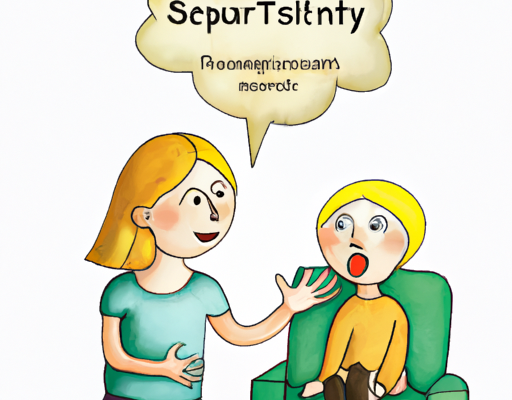Speech development is a crucial aspect of a child’s overall growth and development. It is through speech that children are able to communicate their thoughts, feelings, and needs to the world around them. However, some children may experience delays or difficulties in their speech development, which can have a significant impact on their ability to interact and connect with others. In this article, we will explore the various aspects of speech development in children, including the symptoms, causes, and diagnosis of speech disorders. Additionally, we will delve into the effective treatment approaches that can help children overcome these challenges, including strategies, therapies, and support. By understanding the complexities of speech development and the available resources for treatment, we can better support children in their journey towards effective communication.
1. "Understanding Speech Development in Children: Symptoms, Causes, and Diagnosis"
Speech development in children is a crucial aspect of their overall growth and development. It enables them to express their thoughts, needs, and emotions effectively, facilitating communication with others. However, some children may experience delays or difficulties in their speech development. Understanding the symptoms, causes, and diagnosis of speech development issues in children is essential in order to provide them with the necessary support and treatment.
One of the first signs of speech development issues is a delay in reaching speech milestones. Children typically start uttering their first words around their first birthday and gradually develop their vocabulary. If a child is not babbling or making basic sounds by the age of one, it may indicate a possible speech delay. Other symptoms include difficulty pronouncing certain sounds or words, limited vocabulary, frequent stammering or stuttering, and struggling to form coherent sentences.
There can be various causes for speech development issues in children. Some of the common causes include hearing impairment, developmental disorders such as autism spectrum disorder, sensory processing disorders, neurological conditions, and intellectual disabilities. Additionally, premature birth, genetic factors, oral-motor difficulties, and a lack of exposure to language or stimulation can also contribute to speech delays or disorders.
Diagnosing speech development issues in children involves a comprehensive evaluation conducted by speech-language pathologists (SLPs) or other qualified professionals. The evaluation may include observation of the child’s speech and language skills, assessment of their understanding of language, and analysis of their hearing abilities. SLPs may also conduct specific tests to identify any underlying sensory or motor difficulties that may be affecting the child’s speech development.
It is important to note that early intervention is crucial for children with speech development
2. "Effective Treatment Approaches for Speech Development in Children: Strategies, Therapies, and Support"
Effective Treatment Approaches for Speech Development in Children: Strategies, Therapies, and Support
When it comes to speech development in children, early diagnosis and intervention play a crucial role in ensuring successful outcomes. There are various effective treatment approaches available that focus on improving speech skills and addressing speech disorders in children. These approaches encompass a range of strategies, therapies, and support systems that aim to enhance communication abilities and facilitate overall language development.
1. Speech Therapy:
Speech therapy is one of the most common and effective treatment approaches for children with speech disorders. Speech-language pathologists (SLPs) are trained professionals who specialize in diagnosing and treating speech and language issues. They work closely with children to develop individualized treatment plans based on their specific needs. Speech therapy sessions typically involve a combination of activities, exercises, and techniques that target various aspects of speech production, articulation, and language comprehension. Through consistent therapy sessions, children learn to produce sounds correctly, improve their vocabulary, enhance sentence formation, and develop better conversational skills.
2. Articulation Therapy:
Articulation therapy focuses on correcting specific speech sound errors and improving overall pronunciation. This therapy involves teaching children how to produce specific sounds correctly by breaking them down into smaller, manageable steps. Articulation therapy may include activities such as tongue exercises, sound repetition, sound isolation, and word drills. The goal is to help children develop clear and intelligible speech patterns.
3. Language Intervention:
Language intervention aims to improve a child’s language comprehension and expression skills. It involves working on vocabulary development, sentence formation, grammar rules, and understanding verbal instructions. Language intervention therapy may include interactive activities, picture-based

